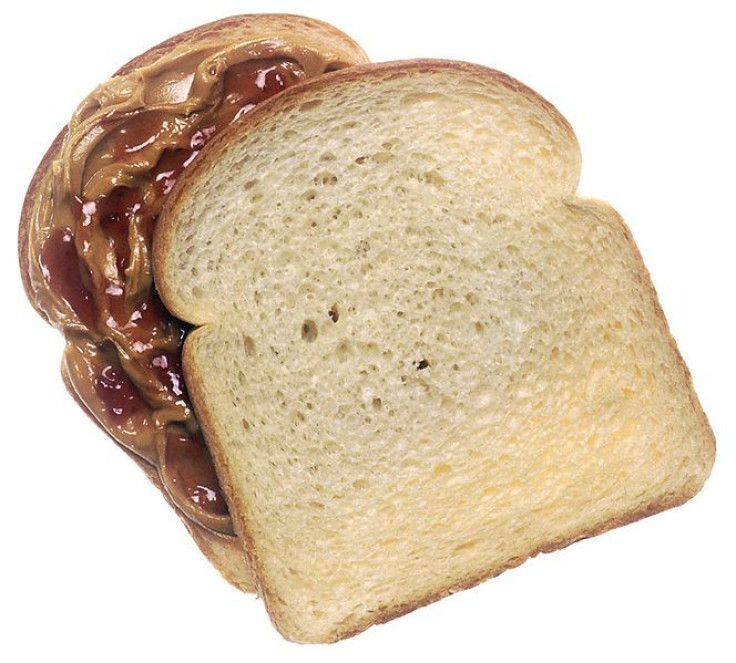Girls Who Eat Nuts And Peanut Butter More Likely To Have Good Breast Health: Enjoy Your PB&J

A peanut butter and jelly sandwich, fondly referred to as ‘PB&J,’ never tasted as good as it does now. Using data collected from the Growing Up Today Study, researchers discovered that girls between the ages of 9 and 15 who regularly ate peanut butter or nuts were 39 percent less likely than their peers to develop benign breast disease by the age of 30.
The Growing Up Today Study
The Growing Up Today Study (GUTS) began in 1996, when researchers at Brigham and Women’s Hospital and Harvard School of Public Health requested additional assistance from the participants in the Nurses’ Health Study. A longitudinal study funded by the National Institutes of Health and begun in 1976, the Nurse’s Health Study enrolled a total of 238,000 dedicated nurse-participants in order to investigate the long-term consequences of oral contraceptives. In 1976, married registered nurse-participants who were aged 30 to 55 and who lived in the 11 most populous states received a questionnaire on diseases and other health-related topics, including smoking, hormone use, and menopausal status. In later years, follow-up questionnaires collected information about diet and nutrition as well.
When researchers established GUTS to research the influence of diet and exercise on weight changes throughout a person’s life, these same nurse-participants kindly enrolled one or more of their children: a total of 16,882 children between the ages of 9 and 14. The study was expanded in 2004 to include an additional 10,923 girls and boys between the ages of 10 and 17.
For this particular investigation of benign breast disease, investigators looked at the data provided by 9,039 females from the ages of 9 to 15; these girls had completed questionnaires annually through 2001, then again in the years 2003, 2005, 2007, and 2010. Those girls who had reached ages 18 through 30 included in their questionnaires information about whether or not they had been diagnosed with benign breast disease (confirmed by breast biopsy).
After analyzing all the collected data, the researchers discovered that girls who ate peanut butter and nuts at age 11 showed a lowered risk of future benign breast disease. For girls aged 14, a daily serving of peanut butter, peanuts, nuts, beans (including lentils and soybeans), and corn similarly lowered their risk of benign breast conditions. The results also showed that even girls with a family history of breast cancer significantly lowered their risk by consuming these foods.
"These findings suggest that peanut butter could help reduce the risk of breast cancer in women," Dr. Graham Colditz, associate director for cancer prevention and control at Barnes-Jewish Hospital, stated in a press release.
What is Benign Breast Disease?
A woman’s breasts have two main types of tissues: glandular tissues and supporting (stromal) tissues. The glandular part of the breast includes the lobules, which make milk for feeding infants, and ducts, through which the milk moves to the nipple. Support tissue includes two distinct types: fatty and fibrous connective tissue. Symptoms can occur when any part of the breast or tissue undergoes a change, whether that change is benign (non-cancerous) or cancerous. Benign breast conditions frequently cause a lump that may or may not feel tender. Other signs of benign disease are redness or thickening of skin and discharge from the nipple that is not milk.
In all cases, the younger a woman is the more likely these conditions are non-cancerous. In every case, though, a woman should request an examination by her doctor. Many of these conditions are very common and, when sampled (biopsied), turn out to be benign. The American Cancer Society notes that non-cancerous breast disease (or conditions) may increase the risk of breast cancer later in life.
For the GUTS study, then, participants who regularly ate peanut butter, peanuts, or nuts showed a lower risk of developing benign breast disease by the age of 30. Colditz, the study's senior author, noted that the findings suggest beans, lentils, soybeans, and corn also might help prevent benign breast disease, but generally the girls ate less of these foods so the evidence was weaker.
“In conclusion, consumption of vegetable protein, fat, peanut butter, or nuts by older girls may help reduce their risk of BBD as young women,” the authors wrote.
Source: Berkey CS, Willett WC, Colditz GA, et al. Vegetable protein and vegetable fat intakes in pre-adolescent and adolescent girls, and risk for benign breast disease in young women. Breast Cancer Research and Treatment. 2013.



























